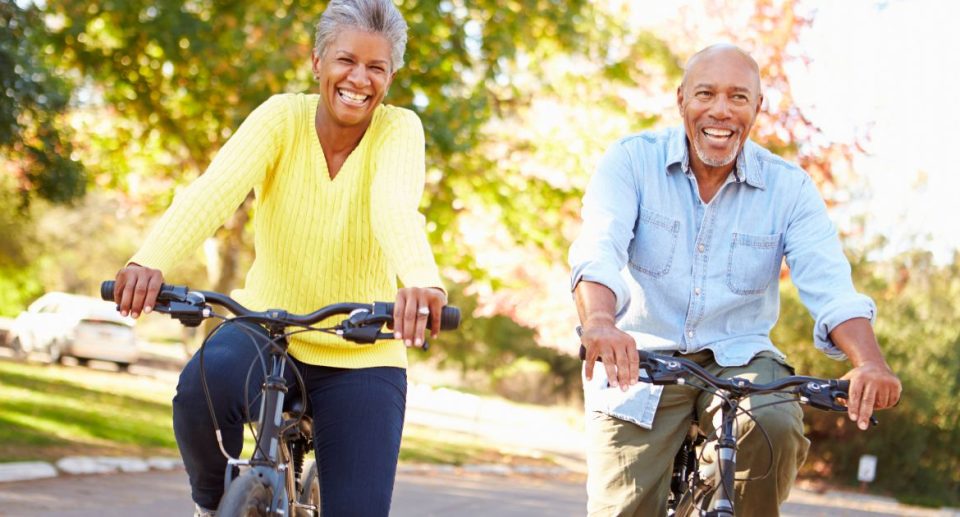What Are the Best Recreational Activities for Seniors?

Finding enjoyable and fulfilling recreational activities is essential for seniors to maintain their physical, mental, and emotional well-being. With a wide range of options available, it’s important to choose activities that align with individual interests, capabilities, and goals. Here, we explore some of the best recreational activities for seniors, categorized into physical, cognitive, and social activities to provide a comprehensive overview.
Physical Activities
1. Walking and Hiking: Walking is one of the simplest and most effective forms of exercise for seniors. It improves cardiovascular health, enhances mood, and helps maintain mobility. For those who enjoy nature, hiking on easy trails can add an extra layer of enjoyment. Joining a walking group can also provide social interaction and motivation to stay active.
2. Swimming: Swimming and water aerobics offer low-impact exercise that is gentle on the joints. These activities help improve cardiovascular fitness, muscle strength, and flexibility. Many community centers offer senior-specific swim classes. Water exercise can also be therapeutic for those with arthritis or joint pain, providing a full-body workout without the strain.
3. Yoga and Tai Chi: Both yoga and tai chi promote balance, flexibility, and relaxation. These practices can help reduce stress, improve posture, and enhance overall physical health. Chair yoga is an excellent option for seniors with limited mobility. Local studios or senior centers often offer classes tailored to different ability levels, ensuring that everyone can participate safely.

4. Dancing: Dancing is a fun way to stay active. Whether it’s ballroom dancing, line dancing, or even Zumba, dancing provides a cardiovascular workout and helps improve coordination and balance. Social dance classes can also be a great way to meet new people. Many community centers and dance schools offer classes specifically for seniors.
5. Cycling: Cycling, whether on a traditional bike or a stationary one, is an excellent way to boost cardiovascular health and strengthen muscles. Electric bikes can also assist, making cycling more accessible for seniors. Cycling clubs or group rides can add a social aspect to this activity, making it more enjoyable and encouraging regular participation.

Cognitive Activities
6. Reading and Book Clubs: Reading keeps the mind engaged and can be a wonderful escape. Joining a book club adds a social component, providing opportunities for discussion and connection with others who share similar interests. Many libraries and community centers host book clubs for seniors, offering a variety of genres to suit different tastes.
7. Puzzles and Brain Games: Engaging in puzzles, crosswords, Sudoku, and other brain games can help maintain cognitive function. These activities stimulate the brain, improve problem-solving skills, and can be enjoyed individually or in groups. Online platforms and apps offer endless options for brain games, allowing seniors to challenge themselves and track their progress.

8. Learning New Skills: Lifelong learning is beneficial for mental health. Seniors can take up new hobbies such as painting, playing a musical instrument, or learning a new language. Many community centers and online platforms offer classes specifically designed for older adults. Continuing education programs at local colleges or universities often provide discounted or free courses for seniors.
9. Computer and Technology Classes: Staying updated with technology can help seniors stay connected with family and friends. Learning to use social media, video calling, and other digital tools can be both a cognitive challenge and a way to reduce feelings of isolation. Many libraries and community centers offer technology classes for seniors, helping them navigate the digital world with confidence.
10. Gardening: Gardening combines physical activity with cognitive engagement. Planning a garden, planting, and caring for plants require problem-solving skills and creativity. Gardening also provides a sense of accomplishment and can be a relaxing, meditative activity. Community gardens offer a social aspect, allowing seniors to share tips and enjoy the fruits of their labor together.

Social Activities
11. Volunteering: Volunteering offers a sense of purpose and connection to the community. Seniors can volunteer at local schools, hospitals, animal shelters, or community centers. This not only benefits others but also provides social interaction and fulfillment. Websites like VolunteerMatch can help seniors find opportunities that match their interests and availability.

12. Group Exercise Classes: Joining group exercise classes, such as senior aerobics, yoga, or water aerobics, combines physical fitness with social interaction. These classes provide motivation, camaraderie, and an opportunity to make new friends. Many gyms and community centers offer classes specifically designed for seniors, ensuring a safe and supportive environment.
13. Travel and Day Trips: Exploring new places can be invigorating. Seniors can join travel clubs or participate in organized day trips to nearby attractions. Travel broadens perspectives, offers new experiences, and can be tailored to different mobility levels. Senior travel groups often plan trips with accessible accommodations and activities, making it easier for everyone to participate.
14. Arts and Crafts: Participating in arts and crafts activities, such as painting, knitting, or pottery, allows seniors to express their creativity. Group classes offer a social component, fostering friendships and a sense of community. Many community centers and art studios offer classes and workshops specifically for seniors, providing a supportive and encouraging environment.

15. Senior Centers and Clubs: Many communities have senior centers that offer a variety of recreational activities, from card games and bingo to fitness classes and educational workshops. Joining these centers provides regular opportunities for social engagement. Senior centers often host special events, outings, and holiday celebrations, creating a vibrant and welcoming community for older adults.
Relaxation and Wellness Activities
16. Meditation and Mindfulness: Practicing meditation and mindfulness helps reduce stress, improve mental clarity, and enhance emotional well-being. Many resources are available, including guided meditations, classes, and online programs specifically designed for seniors. Meditation can be practiced alone or in groups, and even a few minutes a day can have significant benefits.
17. Aromatherapy: Aromatherapy uses essential oils to promote relaxation and well-being. Seniors can use diffusers, bath salts, or massage oils to create a calming environment. This practice can be combined with other relaxation techniques for enhanced benefits. Aromatherapy can also be incorporated into other activities, such as yoga or meditation, to create a more immersive experience.
18. Music Therapy: Listening to or playing music can have profound effects on emotional health. Music therapy can be particularly beneficial for seniors with cognitive impairments, as it can evoke memories and improve mood. Many senior centers and care facilities offer music therapy programs, allowing seniors to engage with music in a therapeutic setting.

19. Pet Therapy: Interacting with pets provides companionship, reduces stress, and can improve physical health through activities like walking or playing. Many organizations offer pet therapy programs, bringing animals to senior centers or arranging visits for homebound seniors. Pet ownership can also provide a sense of responsibility and routine, contributing to overall well-being.

20. Journaling: Writing in a journal allows seniors to reflect on their experiences, express emotions, and practice gratitude. Journaling can be a therapeutic activity that promotes mental clarity and emotional well-being. Seniors can explore different journaling techniques, such as bullet journaling or gratitude journals, to find what best suits their needs.
Conclusion
Engaging in recreational activities is crucial for the overall health and happiness of seniors. By participating in a mix of physical, cognitive, social, and relaxation activities, seniors can enhance their quality of life, stay connected with their communities, and maintain a positive outlook. It’s important to choose activities that are enjoyable and suited to individual preferences and abilities. Whether it’s through group classes, solitary pursuits, or volunteering, there are endless opportunities for seniors to stay active, engaged, and fulfilled. Moreover, these activities can foster new friendships, provide continuous learning experiences, and offer a sense of accomplishment and satisfaction. By exploring and embracing a variety of recreational activities, seniors can create a balanced and enriching lifestyle that supports their well-being in every aspect.





